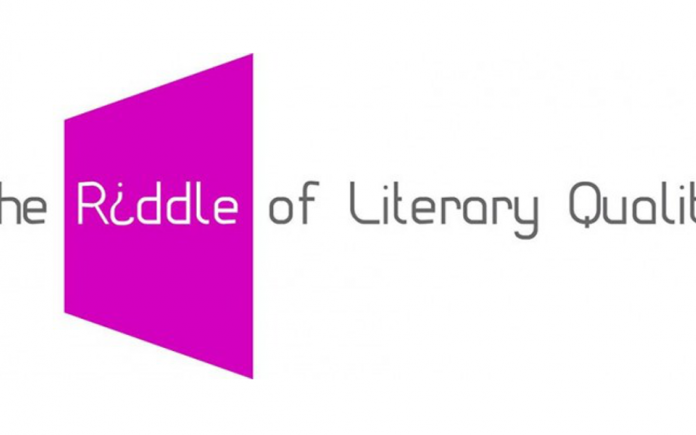The Riddle of Literary Quality

The Riddle of Literary Quality is a research project of the Huygens Institute for the History of the Netherlands in collaboration with the Fryske Akademy and the Institute for Logic, Language and Computation (University of Amsterdam). The Riddle officially started January 15th 2012 and will run for four years. The project is funded by the Computational Humanities Programme of the Royal Netherlands Academy of Arts and Sciences.
Literary quality is one of the most fascinating issues in Literary Studies. Scholars have found that social and cultural factors play an important role in the acceptance of a work as literary or non-literary and as good or bad. In the project “The Riddle of Literary Quality” we assume, however, that formal characteristics of a text may also be of importance in calling a fictional text literary or non-literary, and good or bad – non-literary texts can also be good and literary text can also be bad. Many formal characteristics can be thought of as having a part in this, e.g. the use of difficult words, the number of adjectives and adverbs, or complex syntactic style. This project explores this assumption, integrating the analysis of low-level lexical-statistical features and high-level syntactic and narrative features. The main results that will come out of this project are: (1) a list of formal characteristics and their distribution in a training corpus of differently valued Modern Dutch novels, (2) an evaluation of other Modern Dutch novels based on the results of the training corpus, and (3) results of first experiments of the application of the same measurements on novels from another time period or language. The first two will be described in publications, and the third will take the form of a project plan for a new research program to adapt the tools for diachronic and cross-language application, to make the method applicable to longitudinal research and to the comparison of formal characteristics of literary quality in different languages.
